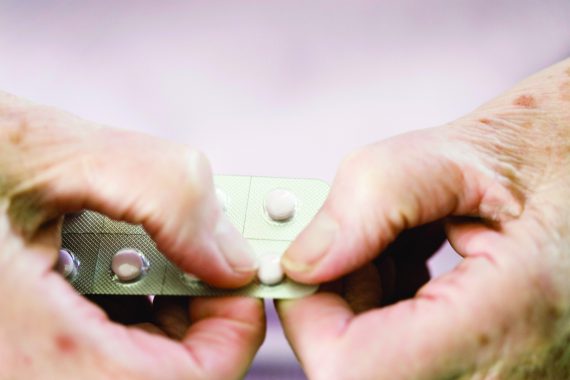Regular use of acid reflux drugs ‘raises type 2 diabetes risk’

GPs should offer regular blood glucose tests to patients who have taken proton pump inhibitors (PPIs) for two or more years, researchers have said.
This comes as a study suggested regular use of acid reflux drugs is linked to a 24% higher risk of developing type 2 diabetes.
Published in the journal Gut, the study tracked data from 204,689 people for between nine and 12 years, finding that the longer that acid reflux drugs are taken, the higher the risk of developing type 2 diabetes.
The researchers said: ‘Owing to wide usage, the overall number of diabetes cases associated with PPI use could be considerable. For patients who have to receive long-term PPI treatment, screening for abnormal blood glucose and type 2 diabetes is recommended.’
The researchers, based in the USA and China, looked at participants from three ongoing cohorts: the Nurses’ Health Study (NHS), the NHS II and the Health Professionals Follow-up Study.
It found 4.32 cases of diabetes per 1,000 people who didn’t regularly take PPIs, rising to 7.44 per 1,000 for regular PPI users. Regular use was defined as twice or more a week.
PPI use for up to two years was associated with a 5% increased risk, while use for more than two years was associated with a 26% increased risk. After participants stopped using PPIs, risk fell over time.
Overall, those who regularly used PPIs were 24% more likely to develop type 2 diabetes than those who didn’t, after considering factors such as high blood pressure, high cholesterol, physical inactivity and use of other medication.
A mounting body of evidence suggests that changes in the gut microbiome may help explain the associations found between PPI use and an increased risk of developing diabetes.
PPIs are used to treat acid reflux, peptic ulcers, and indigestion, and are among the top 10 most commonly used drugs worldwide.
Long-term use has also been linked to an increased risk of bone fractures, chronic kidney disease, gut infections and stomach cancer.
It comes as NHS England announced last month that GPs will be able to prescribe ‘soup and shake weight-loss plans’ for patients to put their type 2 diabetes in remission.
Meanwhile, type 2 diabetes expert GPs welcomed a ‘game changer’ new oral medication which lowers blood sugar levels and leads to weight loss.
Pulse October survey
Take our July 2025 survey to potentially win £1.000 worth of tokens

Visit Pulse Reference for details on 140 symptoms, including easily searchable symptoms and categories, offering you a free platform to check symptoms and receive potential diagnoses during consultations.
Related Articles
READERS' COMMENTS [4]
Please note, only GPs are permitted to add comments to articles



 Oviva’s fully remote Tier 3 Weight Management programme
Oviva’s fully remote Tier 3 Weight Management programme







Shame there’s no ranitidine any more!
I have found that reflux is more usually associated with BMI/Alcohol/Smoking all more linked to NIDDM than PPIs.Cant find any reference to to these factors??
But hey what would I know no more skin in the game
Central obesity aggravates diabetes and reflux. This could mean that correlation does not equal causation.
Publication bias. Poor diet and obesity will result in PPIs. Root cause is lost on research these days.